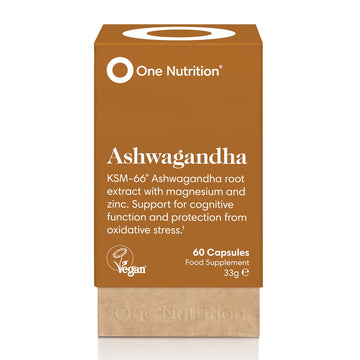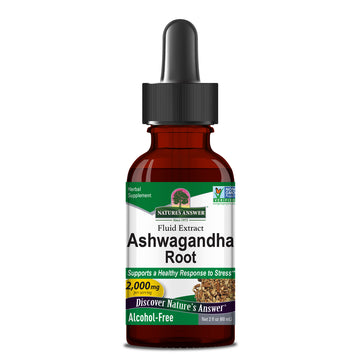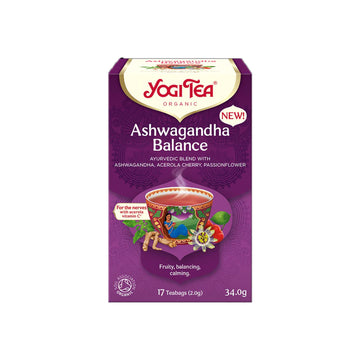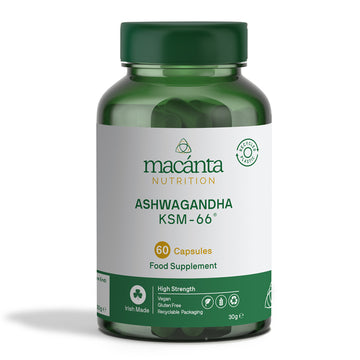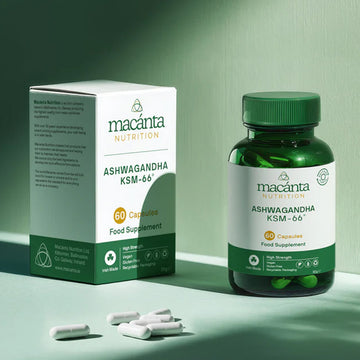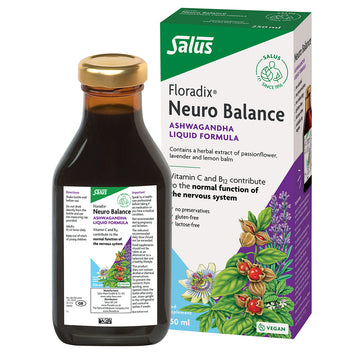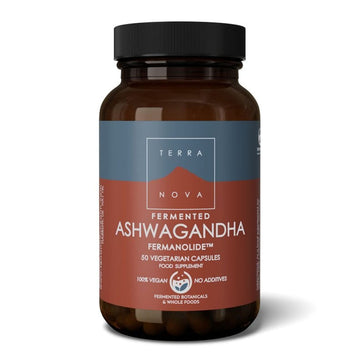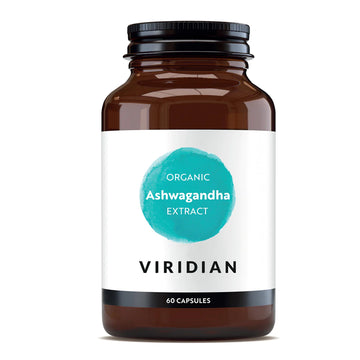Menopause is a natural transition in a woman's life, marking the end of her reproductive years.
While it's a normal biological process, the symptoms associated with menopause like hot flashes, mood swings, sleep disturbances, and decreased libido can be challenging for many women.
The search for natural remedies to alleviate these symptoms has led many to discover Ashwagandha, a traditional herb known for its adaptogenic properties.
In this blog, we’ll explore how Ashwagandha supplements may help with menopause symptoms and provide a natural option for relief.
What is Ashwagandha?
Ashwagandha, also known as Indian ginseng or winter cherry, is a powerful herb used for centuries in Ayurvedic medicine. It is classified as an adaptogen, meaning it helps the body adapt to stress and maintain balance. Ashwagandha has long been used to improve energy, reduce fatigue, support mental health, and promote general well-being. In recent years, this herb has garnered attention for its potential in supporting women through the menopausal transition.
Menopause Symptoms and Ashwagandha’s Benefits
Menopause occurs when a woman's ovaries stop producing hormones like estrogen and progesterone. This hormonal shift leads to a variety of symptoms, many of which can significantly impact daily life. Here's how Ashwagandha may help alleviate some of the common symptoms:
-
Reduces Stress
One of Ashwagandha's most well-known benefits is its ability to reduce stress. During menopause, many women experience mood swings and irritability due to hormonal imbalances. Ashwagandha has been shown to lower cortisol levels, the body's primary stress hormone, helping to promote a sense of calm. By acting on the body's stress response, it can help alleviate the emotional upheaval that often accompanies menopause.
-
Improves Sleep Quality
Sleep disturbances are common during menopause, often due to night sweats and hormonal changes. Poor sleep can exacerbate other symptoms, leaving women feeling fatigued, irritable, and stressed. Ashwagandha has been studied for its potential to improve sleep quality by promoting relaxation and reducing cortisol levels. With improved sleep, women may find that they have more energy and feel more balanced throughout the day.
-
Balances Hormones
Ashwagandha is believed to support the endocrine system, which regulates hormone production. During menopause, the body's hormone levels fluctuate, leading to symptoms like hot flashes, irregular periods, and mood changes. By promoting hormone balance, Ashwagandha may help ease some of the discomfort caused by these fluctuations. While it doesn’t directly affect estrogen or progesterone levels, its overall effect on stress and adrenal function can promote better hormonal harmony.
-
Boosts Libido
Decreased libido is a common symptom of menopause, often caused by lower levels of estrogen. Ashwagandha may help improve sexual function and desire by reducing stress and supporting healthy testosterone levels in women. Testosterone, while primarily a male hormone, also plays a role in female sexual health. By supporting adrenal function, Ashwagandha can potentially improve overall sexual well-being during menopause.
-
Enhances Cognitive Function
Cognitive issues, such as memory lapses or "brain fog," can affect women during menopause. Ashwagandha has neuroprotective properties that may help support brain function, improve focus, and enhance memory. Research suggests that Ashwagandha may reduce oxidative stress in the brain, helping to preserve cognitive health and reduce symptoms of mental fatigue.
How to Take Ashwagandha for Menopause
Ashwagandha is available in several forms, including capsules, powders, tinctures and teas. When choosing a supplement, it’s important to opt for high-quality, standardised extracts to ensure potency and efficacy. Most studies have used doses between 300-500mg of Ashwagandha extract, typically taken once or twice a day.
A Natural Ally for Menopausal Relief
Menopause is a challenging phase in many women’s lives, but natural remedies like ashwagandha could be a valuable addition to your wellness routine, helping you restore balance and vitality during this transformative time.



